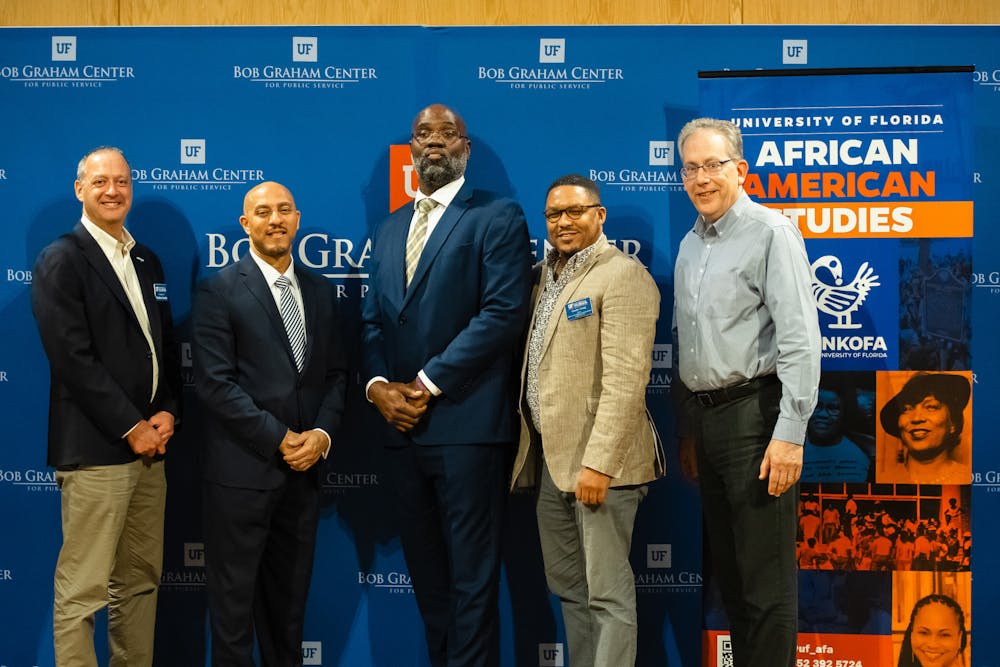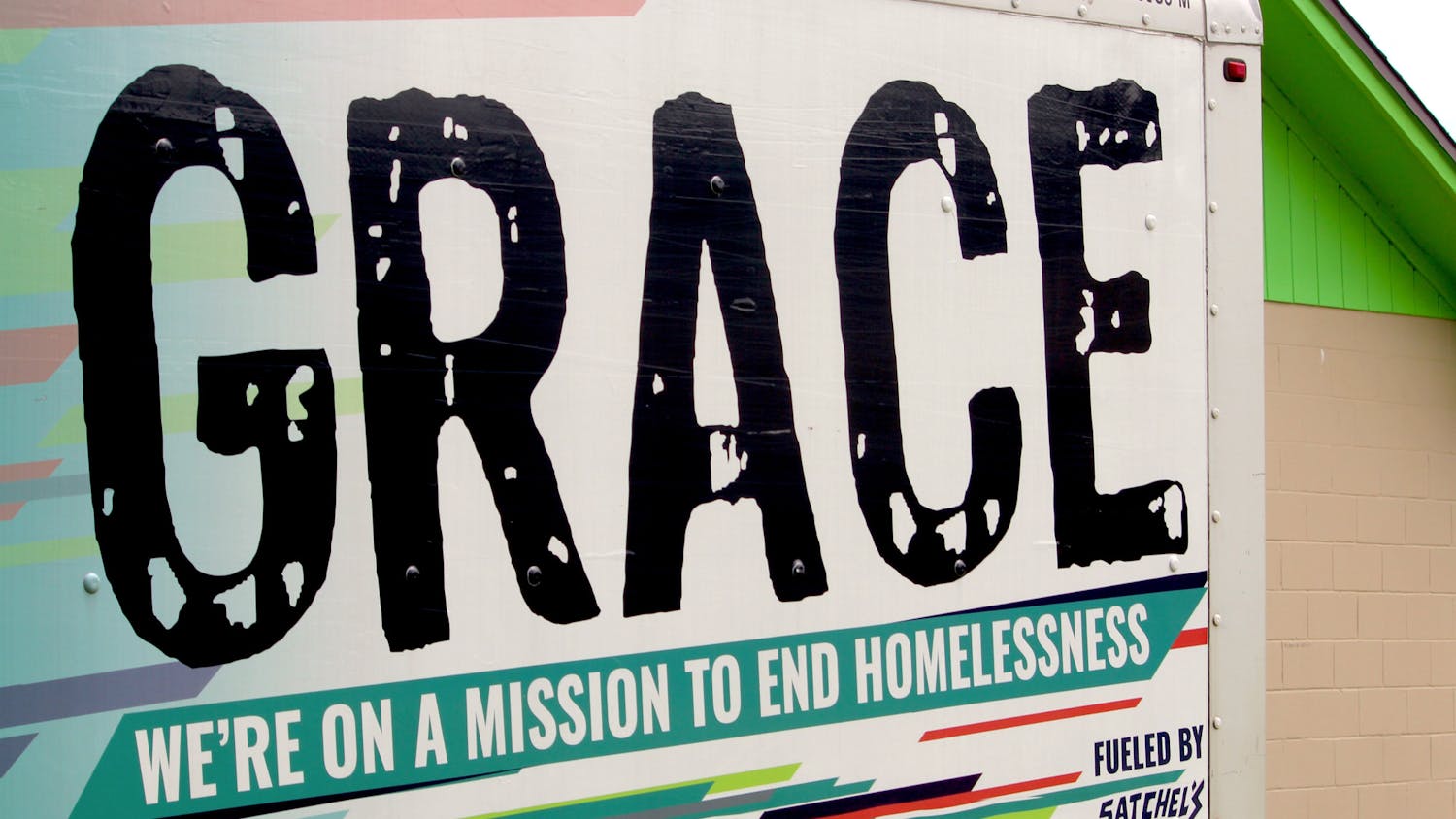Last year, UF slashed $5 million in diversity, equity and inclusion programs to comply with a law pushed by Gov. Ron DeSantis and the Republican-led state legislature. For civil rights scholar Hasan Kwame Jeffries, that made it all the more important to spark conversation on campus about Martin Luther King Jr.’s vision for justice.
Jeffries, an associate professor of history at The Ohio State University, delivered UF’s 2025 MLK Lecture Thursday evening to a crowd of roughly 100 students, faculty and community members at Pugh Hall. Attendees packed into the lobby to hear the lecture, and event staff had to set up extra rows of chairs to accommodate them.
“Florida — and UF in particular — is sort of at the center of the push to reimagine what a university is like and what politics are like,” Jeffries told The Alligator in an interview before the lecture.
Amid political appointments, spending controversies and crackdowns on DEI initiatives, UF has been embroiled in debates about the role of state politics in higher education.
“I don’t think that we should run from those places that are political hot spots,” he said. “I think we should run towards them and share our thoughts and ideas and vision for what we think higher education should be, especially around an occasion like Dr. King’s birthday.”
In his speech, Jeffries argued that DEI initiatives are the modern, practical applications of King’s vision of a “beloved community” where racial harmony and peace prevail. DEI “recognizes that when we elevate others, we all grow stronger and more innovative,” Jeffries said.
“If you stand against diversity, equity and inclusion,” Jeffries said, “then you stand against Dr. King, and you should probably keep his name out your mouth.”
The audience chuckled in response, as it did to Jeffries’ other personal quips, which included fearing 4 year olds, playing Dungeons and Dragons and needling his brother — U.S. House Minority Leader Hakeem Jeffries — about Congress’ inaction.
For much of his speech, however, attendees sat in pensive silence, punctuated by affirmative murmurs.
Jeffries recounted telling his 4-year-old daughter and her classmates about King’s childhood in the segregated South. That night, he also taught his daughter about the 16th Street Baptist Church bombing of 1963, in which four Black girls were murdered by racial terrorists.
Afterward, on the cusp of sleep, eyes shut and back turned to her father, the 4-year-old girl said, “Daddy, I think he was trying to say that America was damaged,” referring to King.
Jeffries said his daughter’s drowsy reflection pinpointed a difficult truth about America: “Its very soul is wounded by centuries of injustice,” he said.
Jeffries said one remedy for racial injustice in America is Afrofuturism, an artistic and intellectual movement that places Black people at the forefront of cultural and scientific advancements. Afrofuturism’s focus on a just and equitable future, he said, aligns with King’s “beloved community” that is grounded in love and a shared humanity.
King’s vision “is not merely a dream — it is a call to action,” Jeffries said. “This afternoon, I challenge us to embrace this vision with courage.”
Victoria Peters, a 21-year-old UF African American studies and political science junior, said she came to the event to engage more with the research she is doing as a Mellon Scholar in her major.
“I think a lot of times when we think about Afrofuturism, we think of it on the creative side,” Peters said.
She appreciated how Jeffries put Afrofuturism in a broader context of collective advancement and implementation.
Mikhail Mikhaylov, a 23-year-old international studies senior, said that simply having a scholarly conversation about racial justice was important for students.
“There are issues [in America], and you want to put a light on it so that you understand how to fix them. … It’s critical for students to be engaged with these types of discussions on an academic level.”
Contact Pristine Thai at pthai@alligator.org. Follow her on X @pristinethai.
Pristine Thai is a university general assignment reporter and a third-year political science and journalism major. Her free time is spent attending classical music concerts or petting cats.






